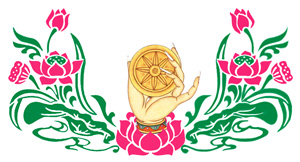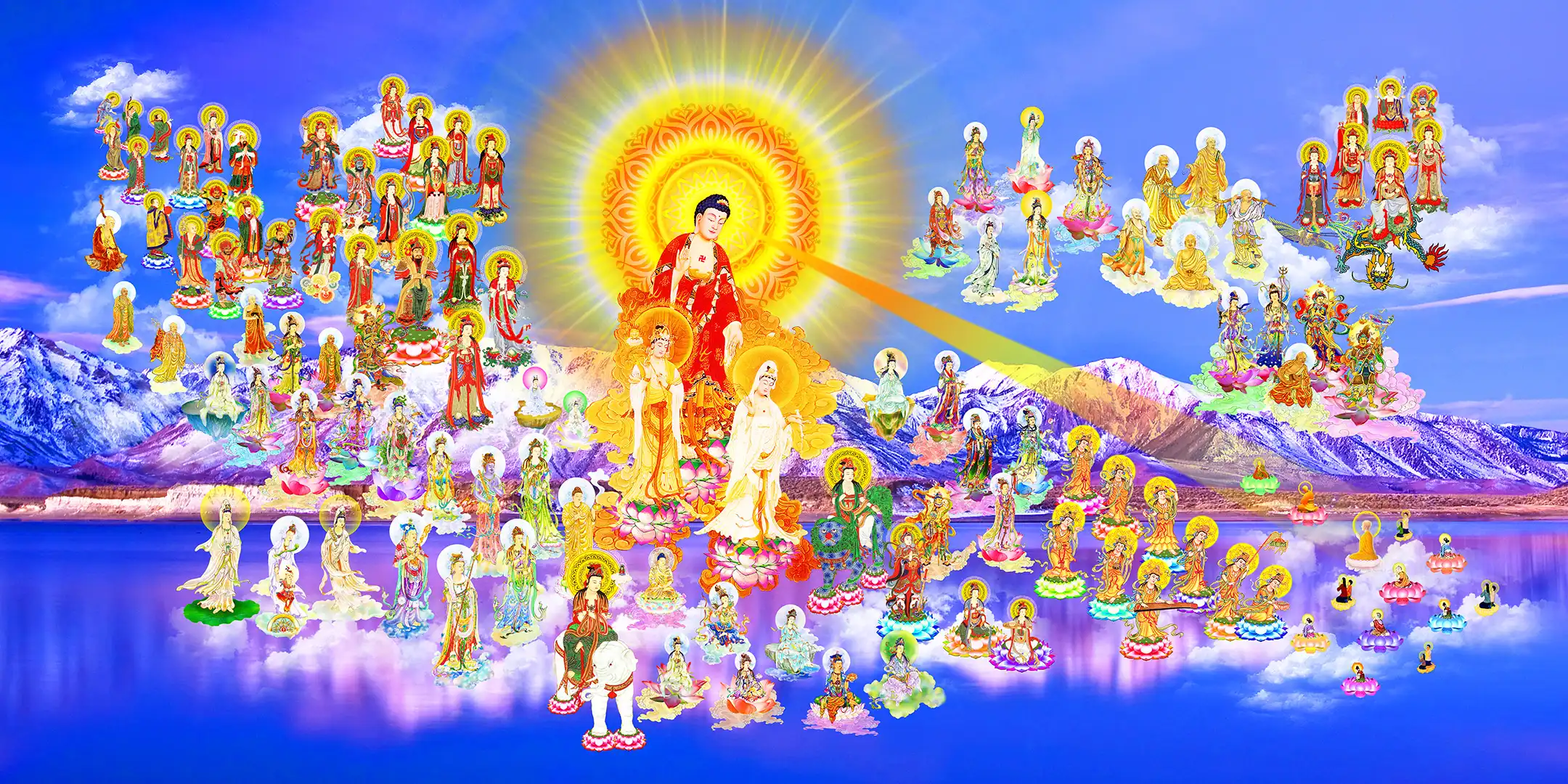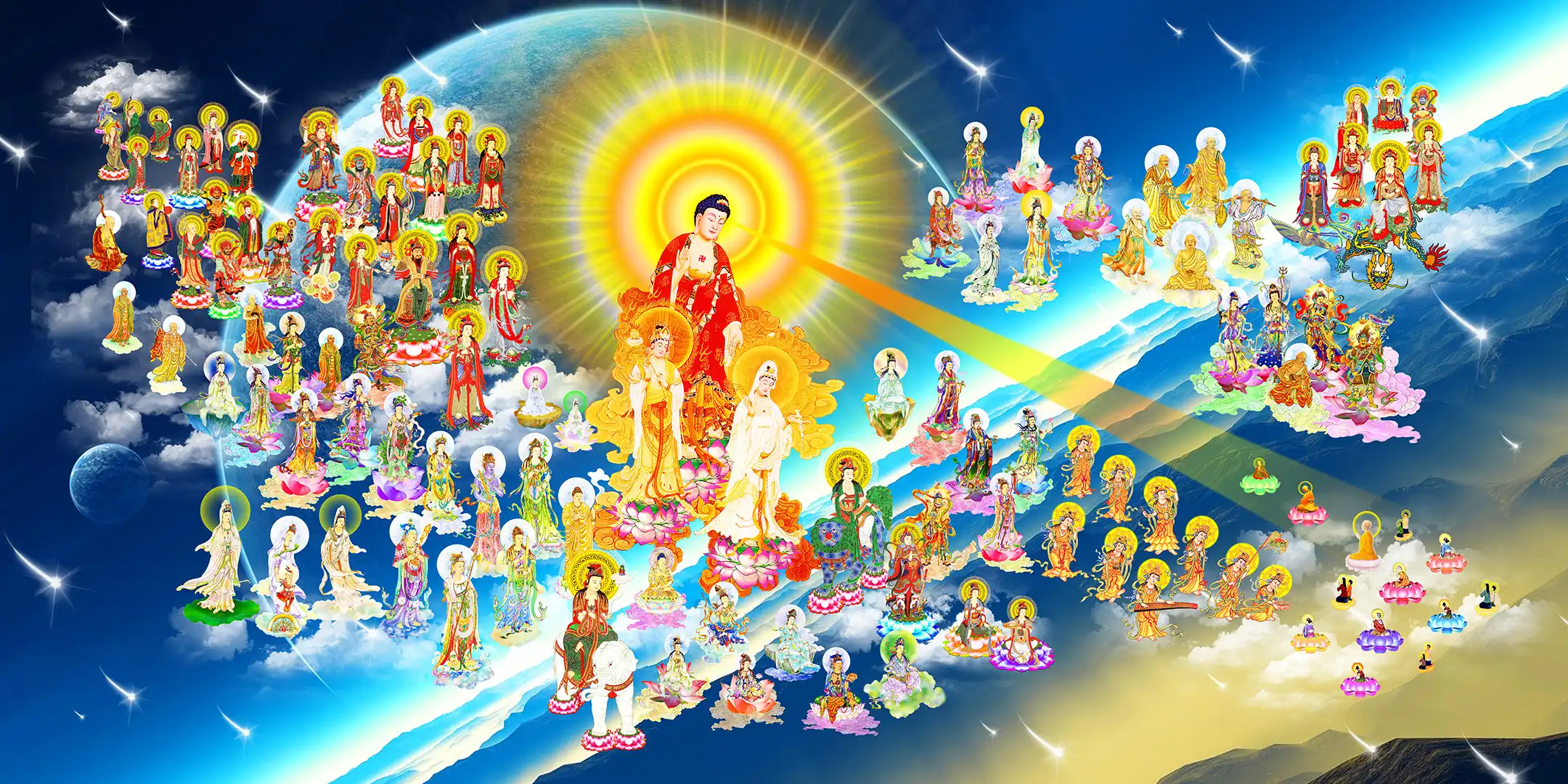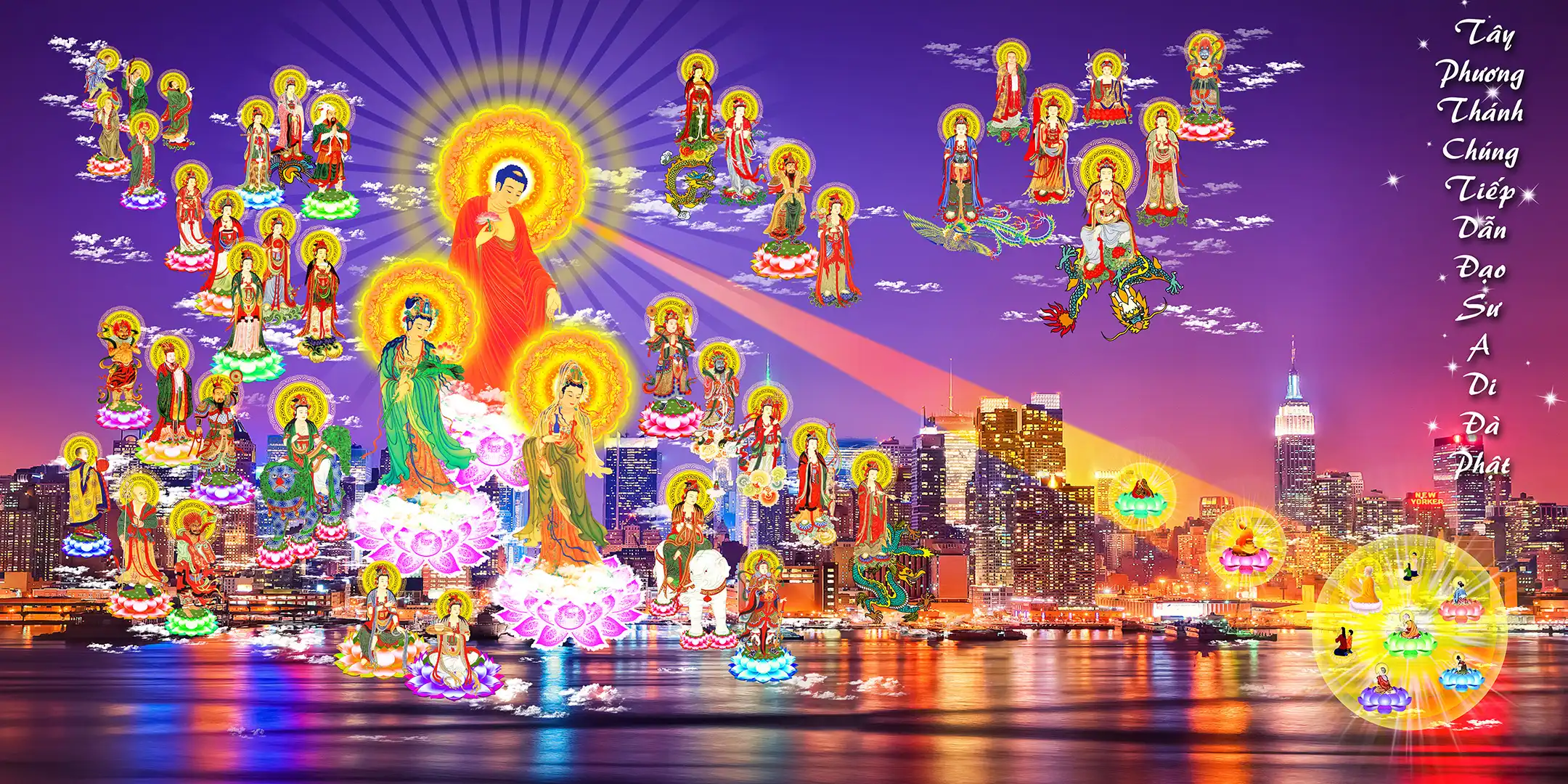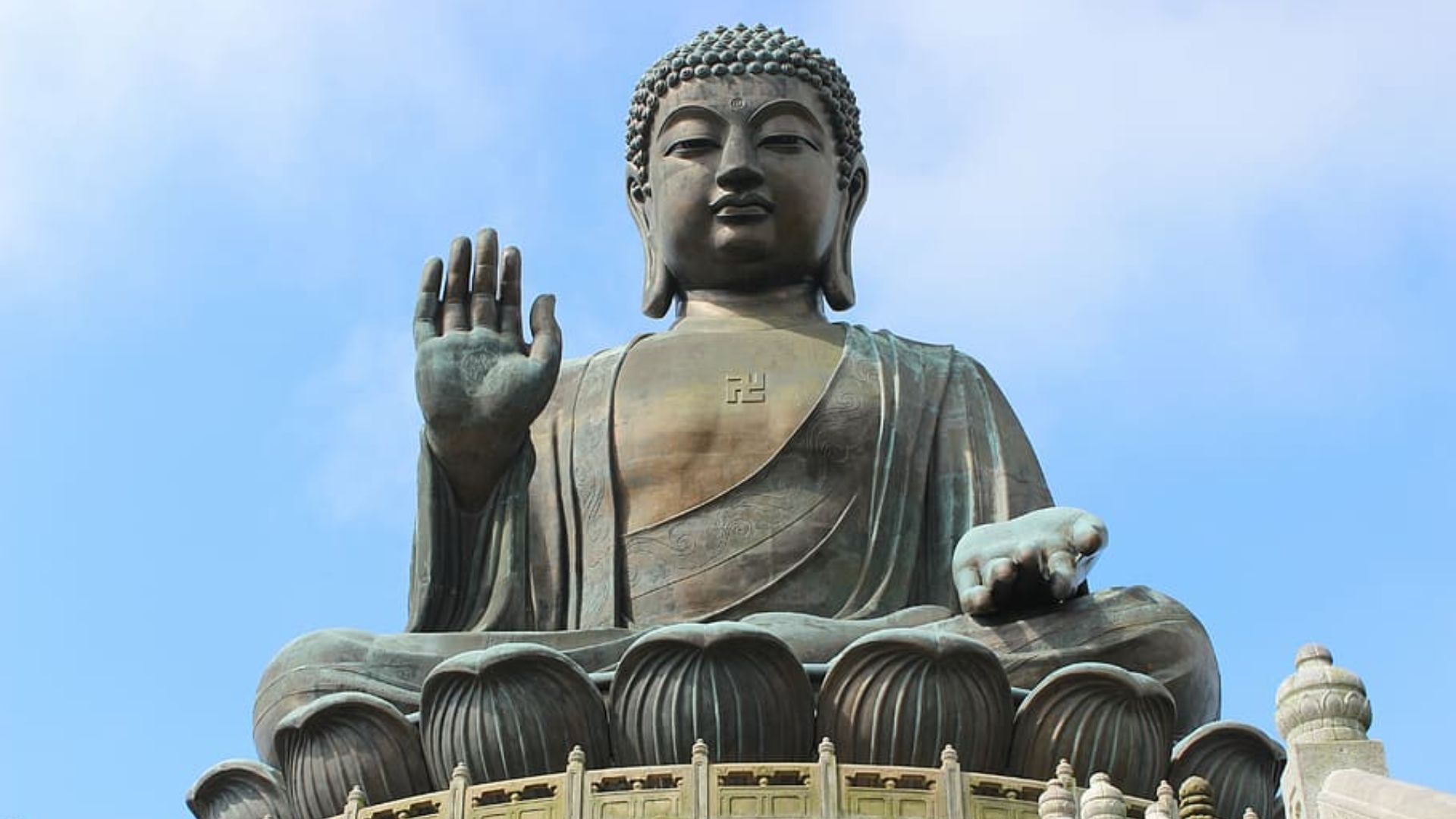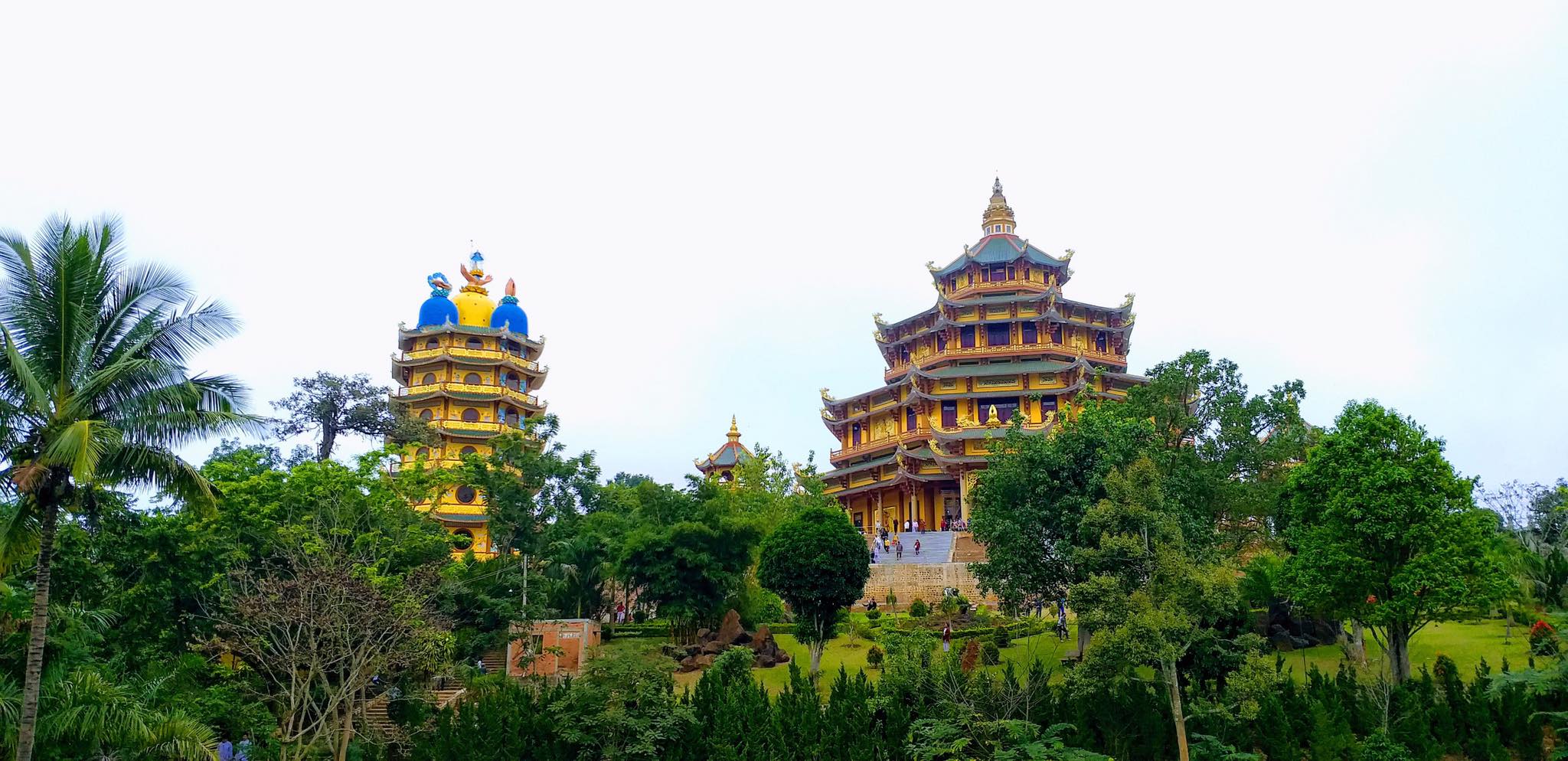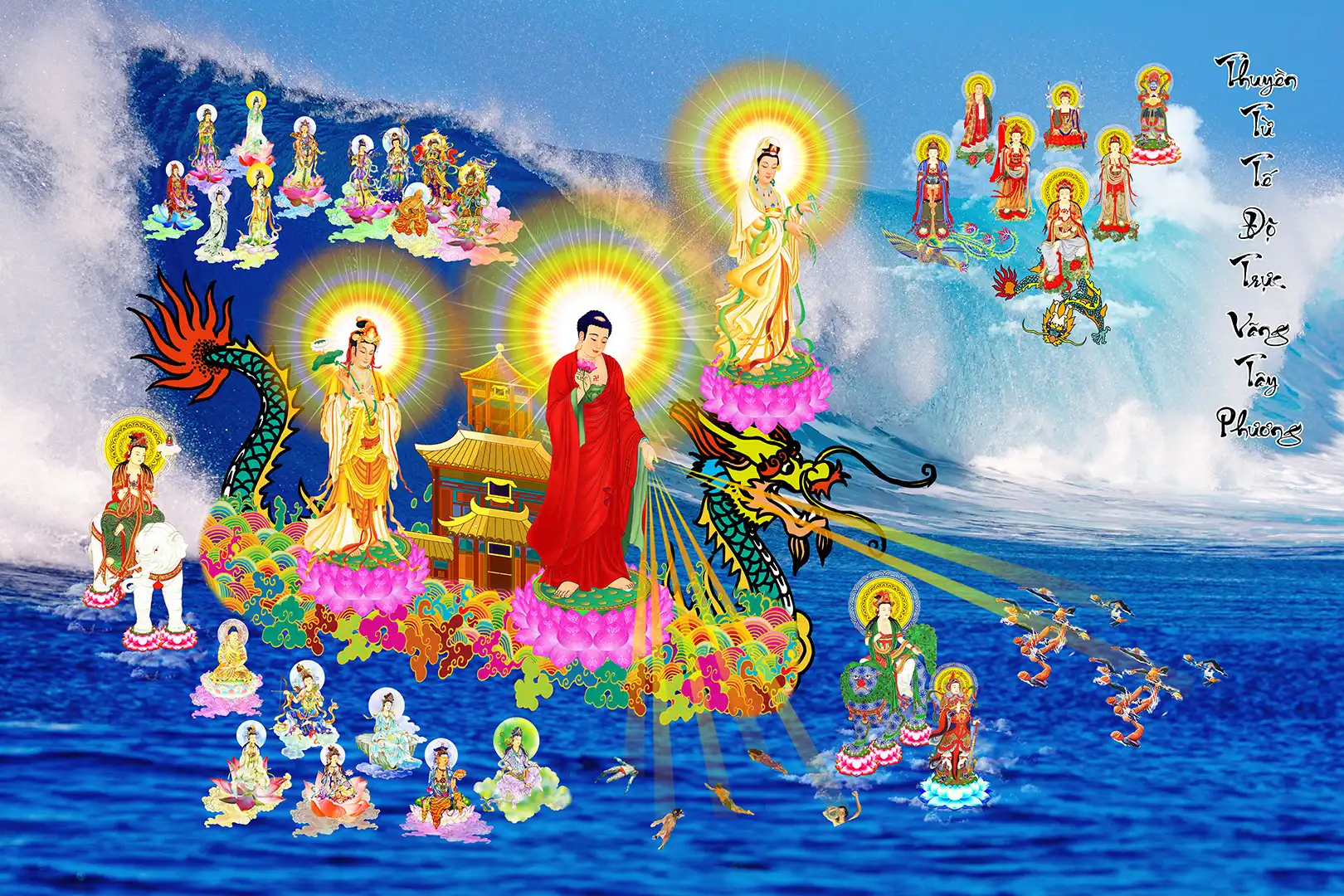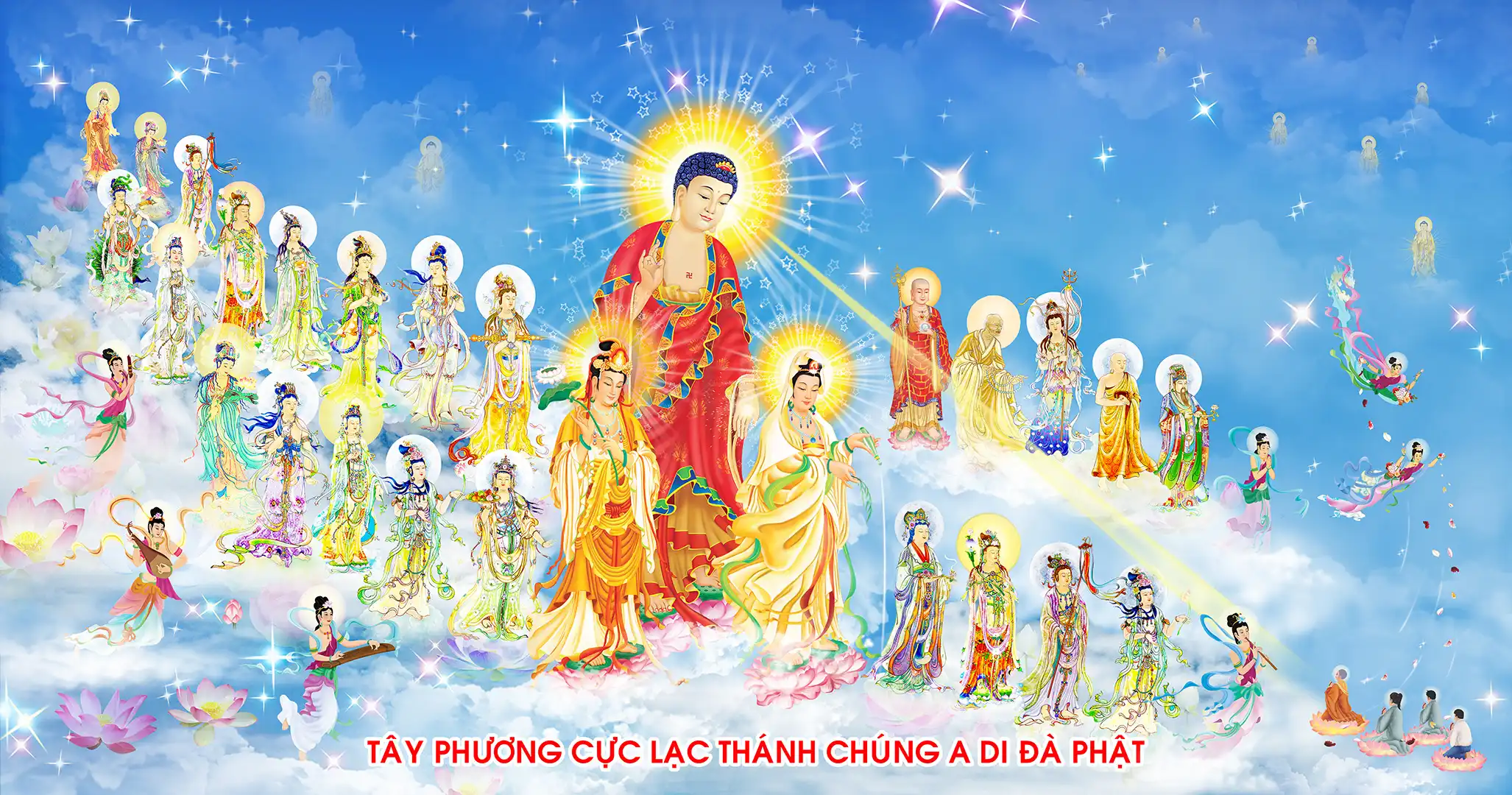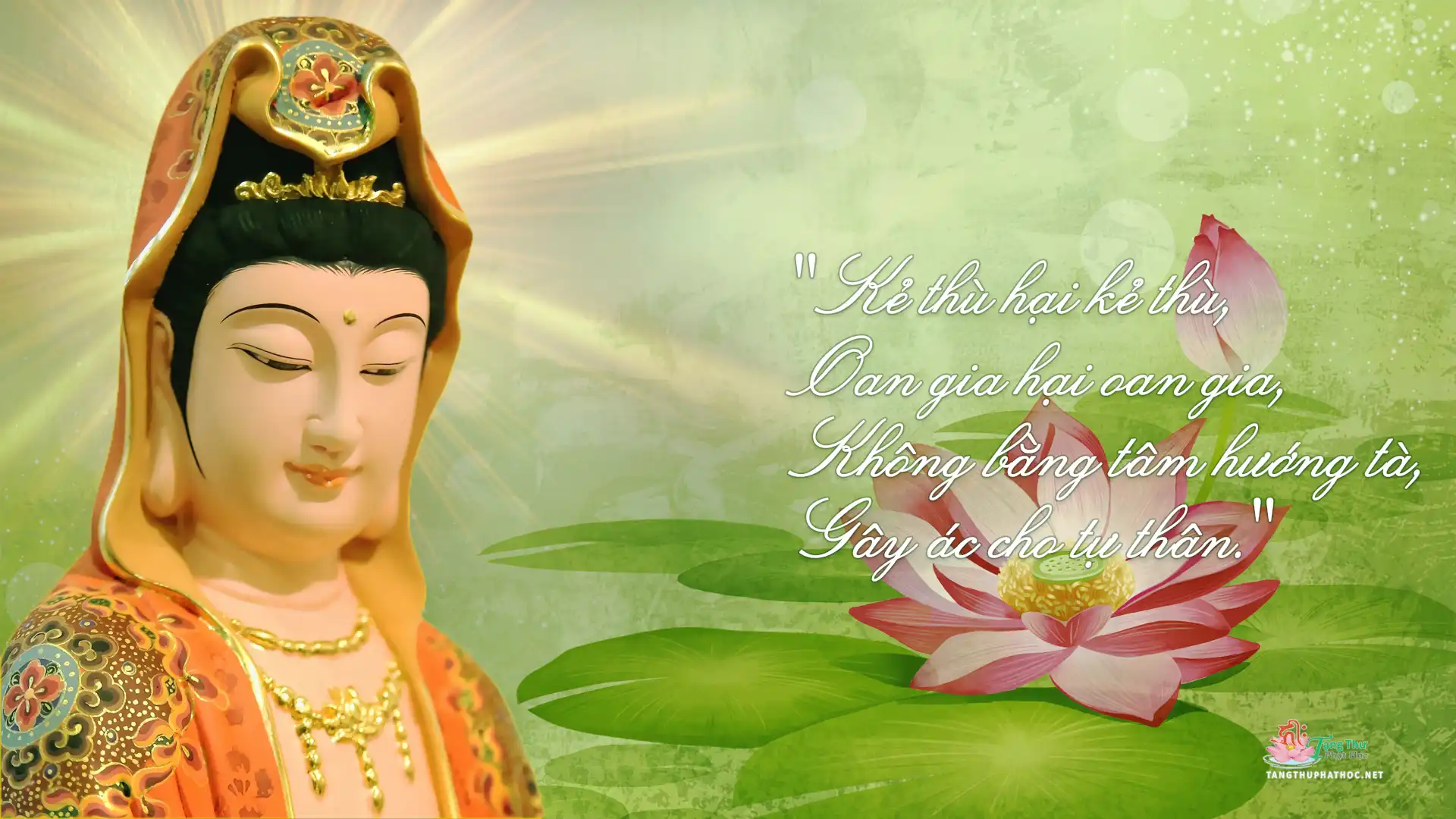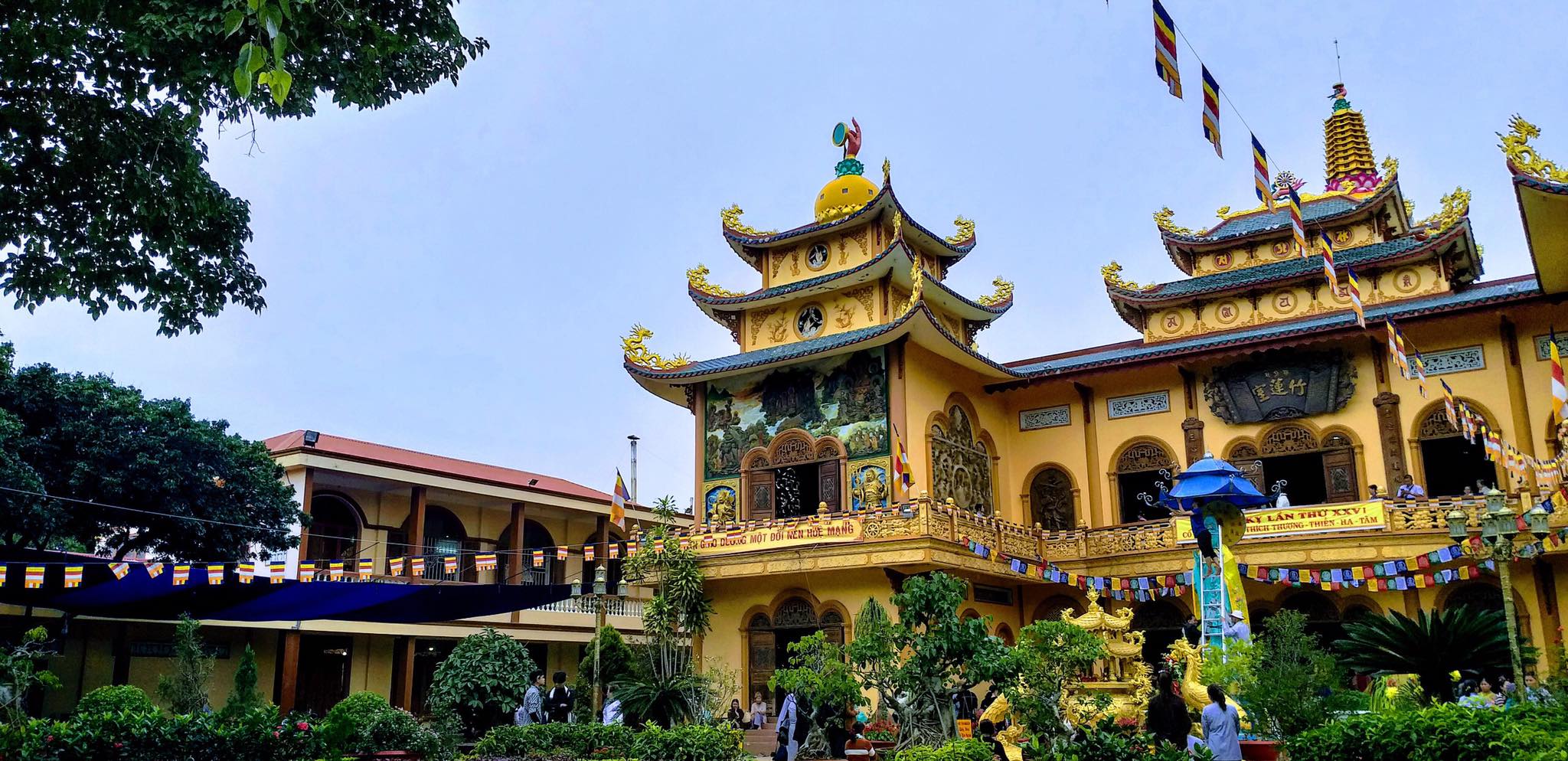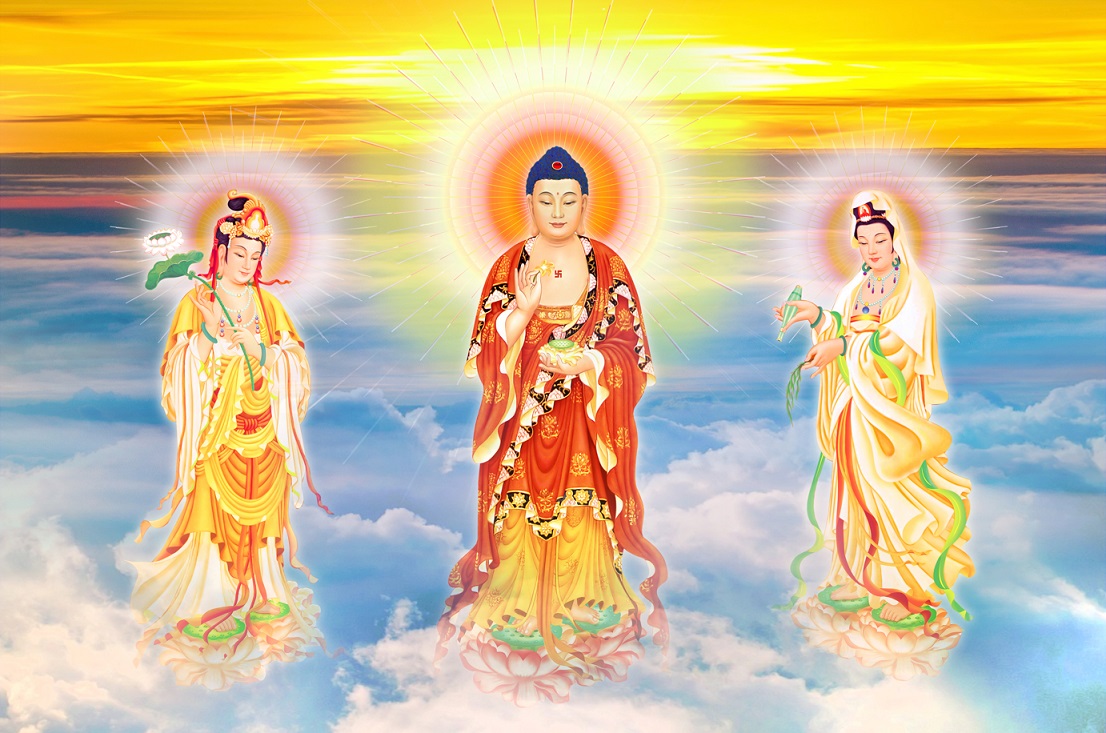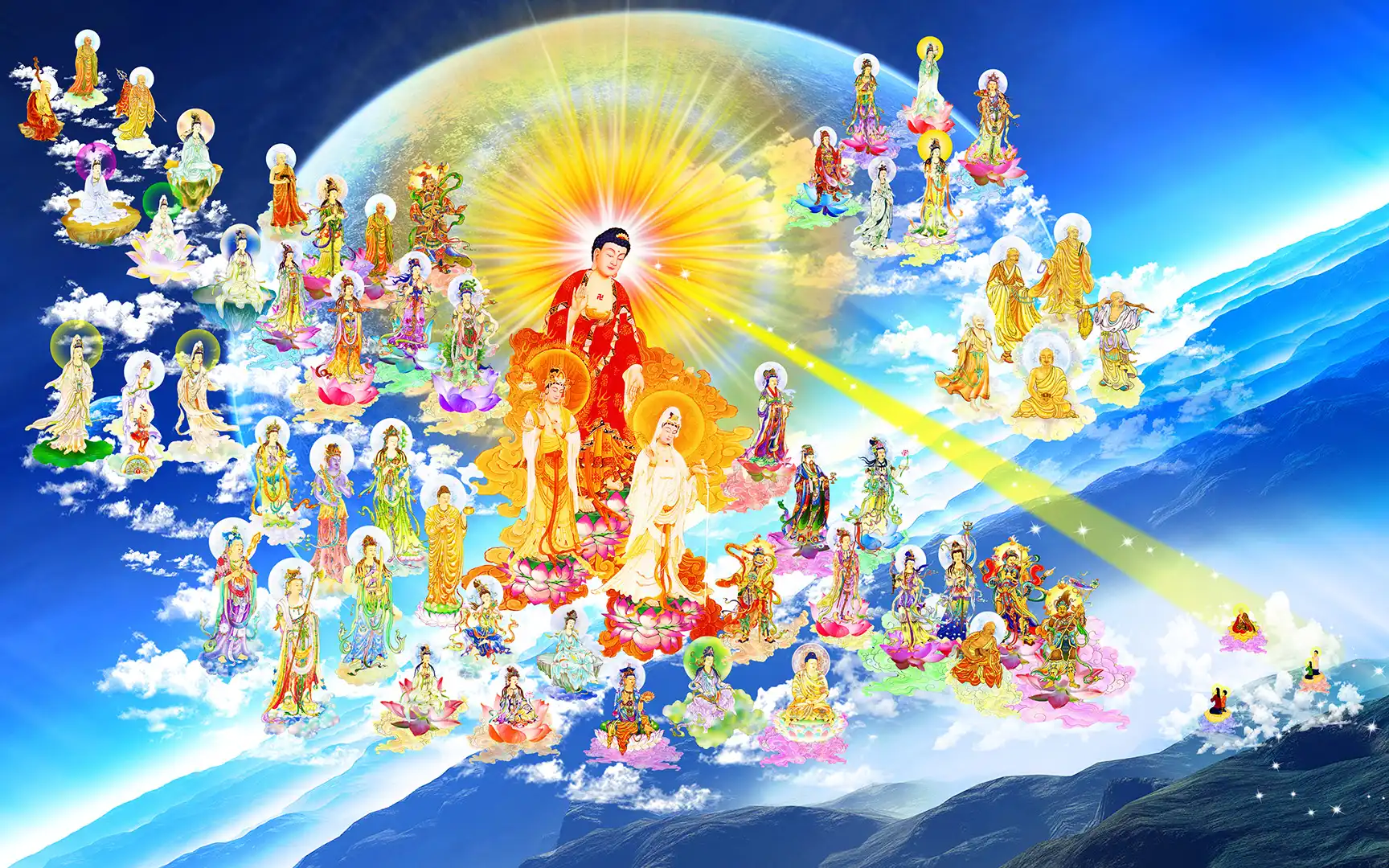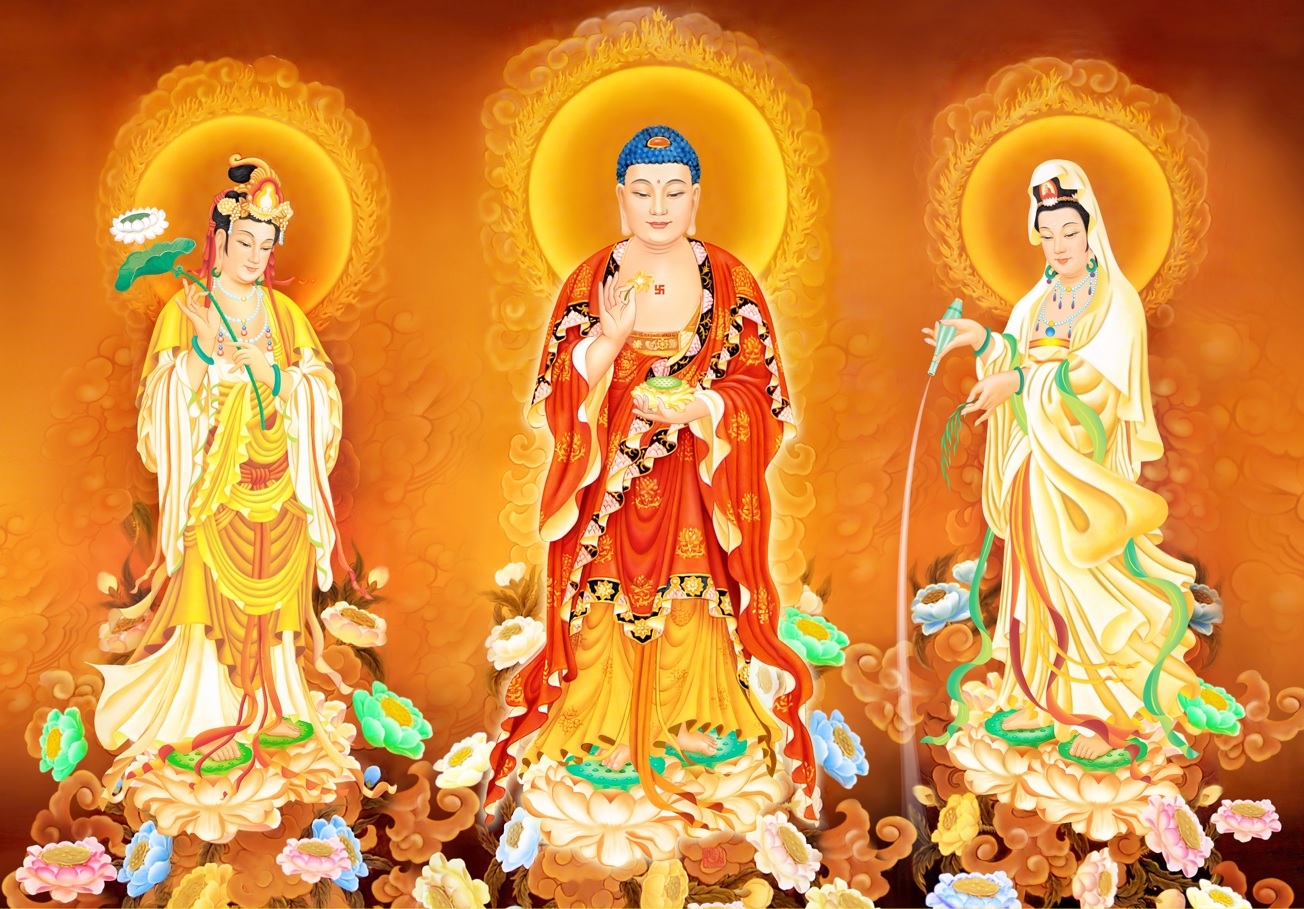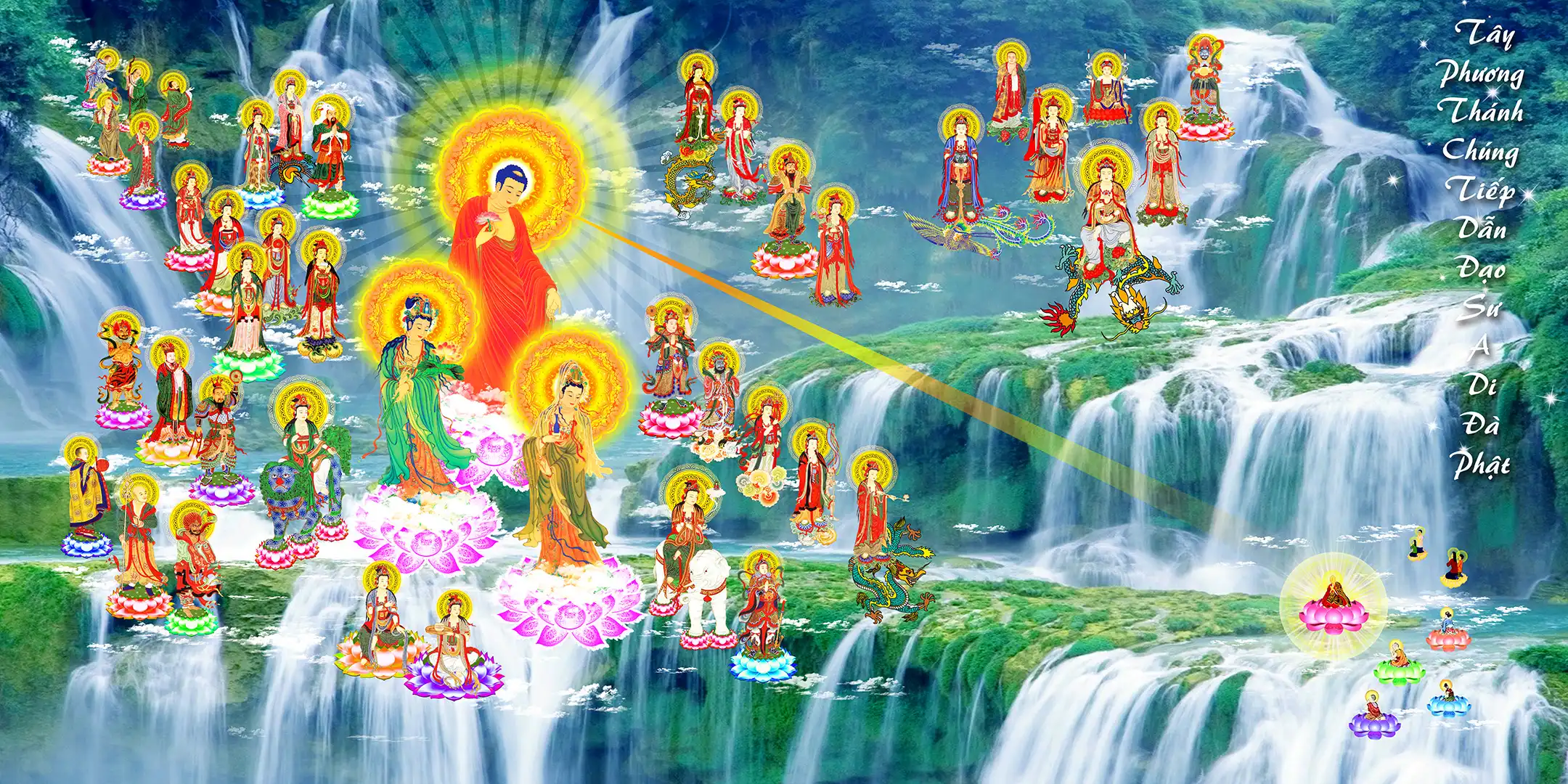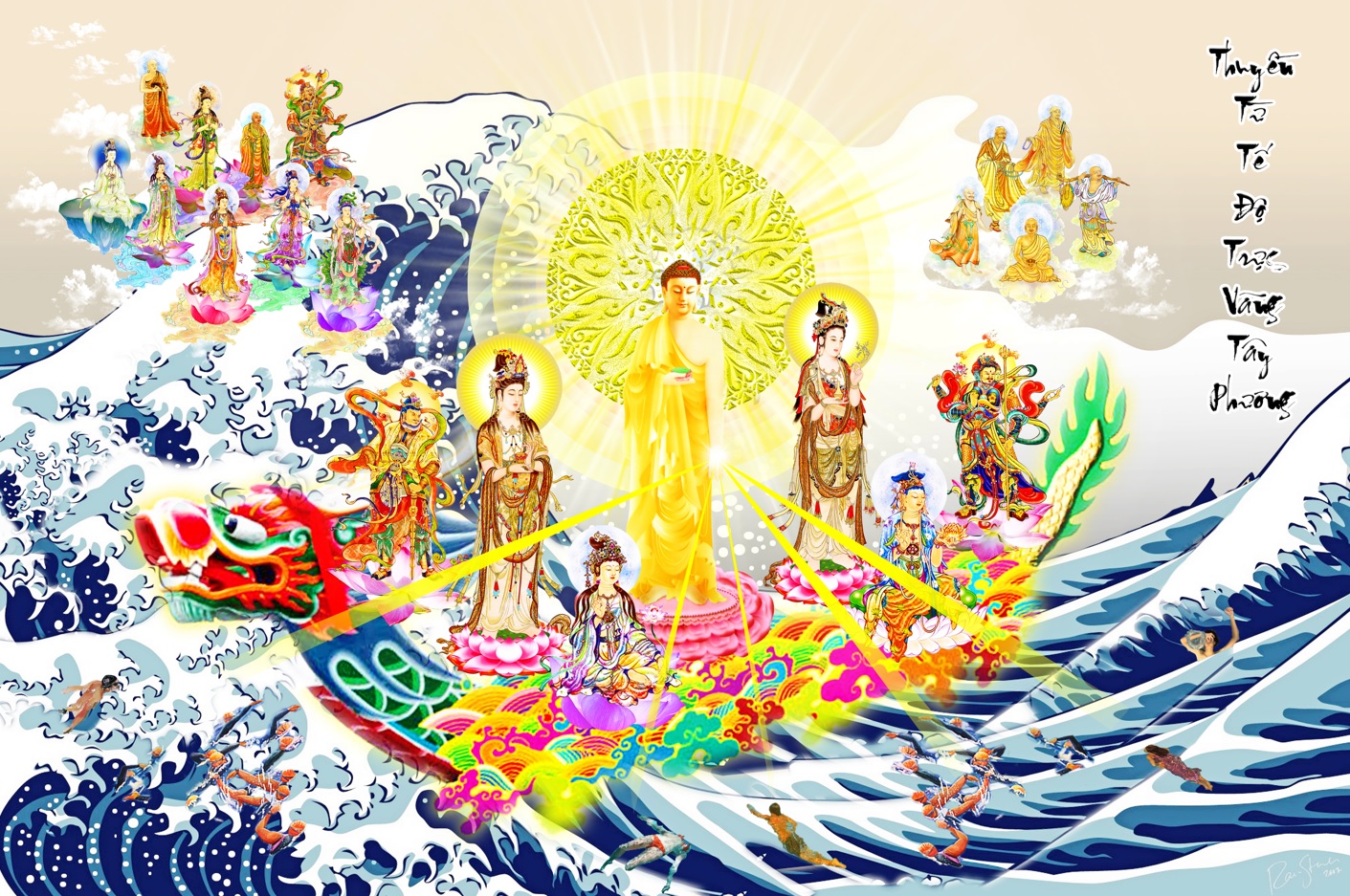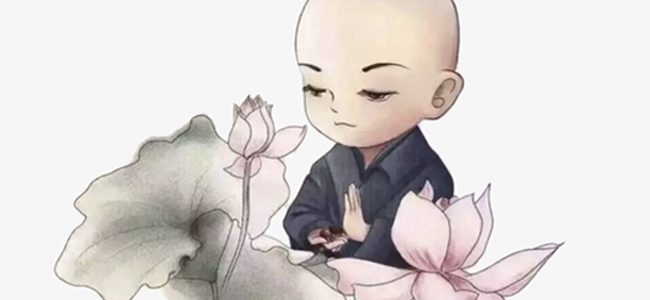Tổ Đình Minh Đăng Quang
PHẬT HỌC TỪ ĐIỂN – BUDDHIST DICTIONARY
Thiện Phúc
PHỤ LỤC (APPENDICES)
PHỤ LỤC K – Appendix K
Kinh Duy Ma Cật
The Vimalakirti Sutra
CHƯƠNG TÁM-CHAPTER EIGHT
PHẨM PHẬT ÐẠO—THE BUDDHA PATH
·Bấy giờ ngài Văn Thù Sư Lợi hỏi ông Duy Ma Cật rằng: “Bồ Tát thế nào là thông đạt Phật đạo?”—Manjusri asked Vimalakirti: “How does a Bodhisattva enter the Buddha path?”
·Duy Ma Cật đáp: “Bồ Tát thực hành phi đạo (trái đạo) là thông đạt Phật đạo.”—Vimalakirti replied: “If a Bodhisattva treads the wrong ways (without discrimination), he enters the Buddha path.”
·Văn Thù Sư Lợi hỏi: “Thế nào là Bồ Tát thực hành phi đạo?”—Manjusri asked: “What do you mean by a Bodhisattva treading the wrong ways?”
·Duy Ma Cật đáp: “Nếu Bồ Tát gây năm tội vô gián mà không buồn giận, đến ở trong địa ngục mà không có tội cấu; đến trong loài súc sanh mà không có những lỗi vô minh kiêu mạn; đến trong ngạ quỷ mà vẫn đầy đủ công đức; đến cảnh sắc và vô sắc giới mà không cho là thù thắng; hiện làm tham dục mà không nhiễm đắm; hiện làm giận dữ mà đối với chúng sanh không có ngại gì; hiện cách ngu si mà dùng trí tuệ điều phục tâm mình; hiện làm hạnh tham lam bỏn xẻn mà bỏ tất cả của cải, không tiếc thân mạng; hiện pháp giới cấm mà ở trong tịnh giới, đến như tội bé nhỏ cũng hết lòng sợ sệt; hiện làm thù hận mà thường từ bi nhẫn nhục; hiện làm lười biếng mà siêng tu các công đức; hiện làm loạn ý mà thường niệm định; hiện làm ngu si mà thông đạt trí tuệ thế gian và xuất thế gian; hiện làm dua dối mà phương tiện thuận theo nghĩa các kinh; hiện làm kiêu mạn mà đối với chúng sanh mình cũng như cầu đó; hiện làm tất cả phiền não mà lòng thường thanh tịnh; hiện vào trong chúng ma mà thuận theo trí tuệ của Phật, không theo đạo giáo khác; hiện làm hàng Thanh Văn mà nói các pháp chưa từng nghe cho chúng sanh; hiện vào hàng Bích Chi Phật mà thành tựu lòng đại bi, giáo hóa chúng sanh; hiện vào hạng nghèo nàn mà có tay đầy đủ công đức; hiện vào hạng tàn tật mà đủ tướng tốt để trang nghiêm thân mình; hiện vào hạng hèn hạ mà sanh trong dòng giống Phật, đầy đủ các công đức; hiện vào hạng người ốm yếu xấu xa mà được thân Na la diên (kim cang), tất cả chúng sanh đều muốn xem; hiện vào hạng già bệnh mà đoạn hẳn gốc bệnh, không còn sợ chết; hiện làm hạng giàu có mà xem là vô thường, không có tham đắm; hiện có thê thiếp, thế nữ mà tránh xa bùn lầy ngũ dục; hiện nơi hạng đần độn mà thành tựu biện tài, vẫn giữ tổng trì; hiện vào tà tế mà dùng chánh tế độ chúng sanh; hiện vào khắp các đạo, để đoạn đứt nhơn duyên; hiện vào Niết Bàn mà không bỏ sanh tử. Thưa ngài Văn Thù Sư Lợi! Nếu Bồ Tát làm được những việc trái đạo như thế, đấy là thông suốt Phật đạo.”—Vimalakirti replied: “(In his work of salvation) if a Bodhisattva is free from irritation and anger while appearing in the fivefold uninterrupted hell; is free from the stain of sins while appearing in (other) hells; is free from ignorance, arrogance and pride while appearing in the world of animals; is adorned with full merits while appearing in the world of hungry ghosts; does not show his superiority while appearing in the (heavenly) worlds of form and beyond form; is immune from defilements while appearing in the world of desire; is free from anger while appearing as if he were resentful; uses wisdom to control his mind while appearing to be stupid; appears as if he were greedy but gives away all his outer (i.e. money and worldly) and inner (i.e. bodily) possessions without the least regret for his own life; appears as if he broke the prohibitions while delighting in pure living and being apprehensive of committing even a minor fault; appears as if he were filled with hatred while always abiding in compassionate patience; appears as if he were remiss while diligently practicing all meritorious virtues; appears as if he were disturbed while always remaining in the state of serenity; appears as if he were ignorant while possessing both mundane and supramundane wisdoms; appears as if he delighted in flattering and falsehood while he excels in expedient methods in conformity with straightforwardness as taught in the sutras; shows arrogance and pride while he is as humble as a bridge; appears as if he were tormented by troubles while his mind remains pure and clean; appears in the realm of demons while defeating heterodox doctrines to conform with the Buddha wisdom; appears in the realm of sravakas where he expounds the unheard of supreme Dharma; appears in the realm of pratyeka-buddhas where he converts living beings in fulfillment of great compassion; appears amongst the poor but extends to them his precious hand whose merits are inexhaustible; appears amongst the crippled and disabled with his own body adorned with the excellent physical marks (of the Buddha); appears amongst the lower classes but grows the seed of the Buddha nature with all relevant merits; appears amongst the emaciated and ugly showing his strong body to the admiration of them all; appears as an old and ill man but is actually free from all ailments with no fear of death; appears as having all the necessities of life but always sees into impermanence and is free from greed; appears to have wives, concubines and maids but always keeps away from the morass of the five desires; appears amongst the dull-witted and stammerers to help them win the power of speech derived from the perfect control of mind; appears amongst heretics to teach orthodoxy and deliver all living beings; enters all worlds of existence to help them uproot the causes leading thereto; and appears as if entering nirvana but without cutting off birth and death; Manjusri, this Bodhisattva can tread heterodox ways because he has access to the Buddha path.”
·Bấy giờ ông Duy Ma Cật hỏi ngài Văn Thù Sư Lợi rằng: “Thế nào là hạt giống Như Lai?”—Vimalakirti then asked Manjusri: “What are the seeds of the Tathagata?”
·Ngài Văn Thù đáp—Manjusri replied:
·Có thân là hạt giống: “Body is (a) seed of the Tathagata;
·Vô minh có ái là hạt giống: Ignorance and craving are its (two) seeds;
·Tham sân si là ba hạt giống: Desire, hate and stupidity its (three) seeds;
·Tứ điên đảo là bốn hạt giống: The four inverted views its (four) seeds (see Tứ Ðiên Ðảo);
·Năm món ngăn che là năm hạt giống: The five covers (or screens) its (five) seeds (see Ngũ Triền Cái);
·Lục nhập là sáu hạt giống: The six organs of sense its (six) seeds (see Lục Nhập);
·Thất thức là bảy hạt giống: The seven abodes of consciousness its (seven) seeds;
·Tám tà pháp là tám hạt giống: The eight heterodox views its (eight) seeds;
·Chín món não là chín hạt giống: The nine causes of klesa (troubles and their causes) its (nine) seeds;
·Thập ác là mười hạt giống: The ten evils its (ten) seeds. To sum up, all the sixty-two heterodox views and all sorts of klesa are the seeds of Buddhahood.
·Ông Duy Ma Cật hỏi: “Tại sao thế?”—Vimalakirti asked Mnjusri: “Why is it so?”
Văn Thù đáp: “Nếu người thấy vô vi mà vào chánh vị (Niết Bàn) thời không thể còn phát tâm Vô thượng Chánh đẳng Chánh giác nữa. Ví như chỗ gò cao không thể sinh hoa sen, mà nơi bùn lầy thấp ướt mới có hoa sen. Như thế, người thấy vô vi, vào chánh vị không còn sanh trong Phật pháp được, mà ở trong bùn lầy phiền não mới có chúng sanh nghĩ đến Phật pháp mà thôi. Lại như gieo hạt giống trên hư không thì không sinh được, ở đất phân bùn mới tốt tươi được. Như thế, người đã vào vô vi chánh vị không sanh được trong Phật pháp, kẻ khởi ngã kiến như núi Tu Di còn có thể phát tâm Vô thượng Chánh đẳng Chánh giác mà sinh trong Phật pháp. Cho nên phải biết tất cả phiền não là hạt giống Như Lai. Ví như không xuống bể cả, không thể đặng bảo châu vô giá, cũng như không vào biển cả phiền não thời làm sao mà có ngọc báu’nhứt thiết trí.’”—Manjusri replied: “Because he who perceives the inactive (wu wei) state and enters its right (nirvanic) position, is incapable of advancing further to achieve supreme enlightenment (anuttara-samyak-sambodhi). For instance, high ground does not produce the lotus, which grows only in marshy land. Likewise, those perceiving nirvana and entering its right position, will not develop into Buddhahood, whereas living beings in the mire of klesa can eventually develop the Buddha Dharma. This is also like seeds scattered in the void, which do not grow, but if they are planted in manured fields they will yield good harvests. Thus, those entering the right position (of nirvana) do not develop the Buddha Dharma, whereas those whose view of the ego is as great as (Mount) Sumeru may (because of the misery of life) eventually set their minds on the quest of supreme enlightenment, thereby developing the Buddha Dharma.
“Therefore, we should know that all sorts of klesa are the seeds of the Tathagata. This is like one who does not plunge into the ocean will never find the priceless pearl. Likewise, a man who does not enter the ocean of klesa will never win the gem of all-knowledge (sarvajna).”
·Lúc bấy giờ ngài Ðại Ca Diếp khen rằng: “Hay thay! Hay thay! Ngài Văn Thù Sư Lợi, lời nói thích quá. Thật đúng như lời Ngài nói những bọn trần lao là giống Như Lai. Hôm nay, chúng tôi không còn kham phát tâm Vô thượng Chánh đẳng Chánh giác. Ðến như người đủ năm tội vô gián còn có thể phát ý mong sanh trong Phật pháp, mà nay chúng tôi hoàn toàn không phát được. Ví như những người năm căn đã hư, đối với năm món dục lạc chẳng còn cảm xúc. Cũng như hàng Thanh Văn đã đoạn hết kiết sử, ở trong Phật pháp không còn có lợi ích gì mấy, bởi không còn có chí nguyện.”—At that time, Mahakasyapa exclaimed : “Excellent, Manjusri, excellent, your sayings are most gratifying. As you have said, those suffering from klesa are the seeds of the Tathagata. So we are no longer capable of developing a mind set on enlightenment. Even those committing the five deadly sins can eventually set their minds on the quest of the Buddha Dharma but we are unable to do so, like persons whose defective organs prevent them from enjoying the five objects of the senses. Likewise, the sravakas who have cut off all bonds (of transmigration) are no longer interested in the Buddha Dharma and will never want to realize it.
Vì thế, thưa ngài Văn Thù Sư Lợi! Phàm phu ở trong Phật pháp còn có ảnh hưởng, mà hàng Thanh Văn thời không. Vì sao? Vì phàm phu nghe Phật nói pháp khởi được đạo tâm vô thượng, chẳng đoạn Tam Bảo, còn chính như Thanh Văn trọn đời nghe Phật pháp: thập lực, tứ vô úy, vân vân mà hoàn toàn cũng không phát được đạo tâm vô thượng.”—Therefore, Manjusri, the worldly man still reacts (favourably) to the Buddha Dharma whereas the sravaka does not. Why? Because when the worldly man hears about the Buddha Dharma, he can set his mind on the quest of the supreme path, thereby preserving for ever the Three Treasures (of Buddha, Dharma and Sangha), whereas the sravaka, even if he passes his lifetime listening to the Dharma and witnessing the fearlessness of the Buddha, etc., will never dream of the supreme way.”
Trong chúng hội có Bồ Tát tên Phổ Hiện Sắc Thân hỏi ông Duy Ma Cật rằng: “Cư sĩ! Cha mẹ, vợ con, thân bằng quyến thuộc, những người trí thức là ai? Tôi tớ, trai bạn, voi ngựa, xe cộ ở đâu?”—A Bodhisattva called Universal Manifestation, who was present asked Vimalakirti: “Who are your parents, wife and children, relatives and kinsmen, official and private friends, and where are your pages and maids, elephants and horse carts?”
Duy Ma Cật dùng bài kệ đáp rằng—In reply Vimalakirti chanted the following:
Trí độ mẹ Bồ Tát, phương tiện ấy là cha, Ðạo sư tất cả chúng, đều do đấy sinh ra—Wisdom-perfection is a Bodhisattva’s Mother, his father is expedient method, For the teachers of all living beings come, Only from these two (upaya and prajna).
Pháp hỷ chính là vợ, tâm từ bi là gái, tâm thành thực là trai, rốt ráo vắng lặng nhà—His wife is joy in Dharma’s law; Kindness and pity are his daughters; His sons morality and truthfulness; Absolute voidness his quiet abode.
Trần lao là đệ tử, tùy ý mà sai xử, đạo phẩm vốn bạn lành, do đấy thành Chánh giác—Passions are his disciples Whom he transforms at will. Bodhipaksita dharma are his friends. Helping him to win supreme enlightenment.
Các độ là pháp lữ, tứ nhiếp là kỹ nữ, ca ngâm tụng lời pháp, lấy đó làm âm nhạc, vườn tược ấy tổng trì, cây rừng pháp vô lậu, hoa giác ý sạch mầu, trái giải thoát trí tuệ—All other perfections are his companions. The four winning methods are his courtesans, hymns, chants and intonations of Dharma are his melodies. Complete control over passions is his domain, passionlessness is his grove. The (seven) grades of bodhi are the flowers bearing the fruit of wisdom’s liberation.
Bát giải thoát là ao tắm, nước định lặng trong đầy, rải bảy thứ tịnh hoa, để tắm người không nhơ—The pool of eightfold liberation holds calm water, which is clear and full. The seven blossoms of purity are well arranged to bathe this undefiled (Bohdisattva) man.
Ngũ thông voi ngựa chạy, Ðại thừa là xe cộ, cầm cương là nhất tâm, dạo chơi đường bát chánh—Whose five supernatural powers are walking elephants and horses while the Mahayana is his vehicle, which controlled by the one mind, rolls through the eight noble paths.
Tướng đủ nghiêm mặt mày, các tốt trau hình dáng, hổ thẹn làm thượng phục, thâm tâm làm tràng hoa— (Thirty-two) distinctive marks dignify his body; while (eighty) excellences add to it their grace. Shamefulness is his raiment, and deep mind his coiffure.
Giàu có bảy của báu, dạy bảo để thêm lợi, như lời nói tu hành, hồi hướng làm lợi lớn—The seven riches that he owns are his assets which, used to teach others, earn more dividends. Dedicating all merits (to Buddhahood), his practice of the Dharma has received wins far greater profit.
Tứ thiền làm giường ghế, từ tịnh mạng sanh ra, học rộng thêm trí tuệ, đó là tiếng tự giác—The four dhyanas are his meditation bed, which from pure living originates. Much learning increases wisdom announcing self-awakening.
Món ăn pháp cam lồ, nước uống vị giải thoát, tắm rửa sạch tịnh tâm, hương hoa là giới phẩm. Trừ dẹp giặc phiền não, mạnh mẽ không ai hơn, hàng phục bốn thứ ma, phướn tốt dựng đạo tràng—His broth is the flavour of release. The precepts are his perfumed
Salve and pure mind is his bath. By killing the culprit klesa is his boldness unsurpassed. By defeating the four demons, he plants his triumphant banner as a bodhimandala.
Tuy biết không sanh diệt, vì dạy chúng có sanh, khắp hiện vào các cõi, như mặt nhựt đều thấy—Though he knows there is neither birth nor death, he is reborn to show himself to all, appearing in many countries. Like the sun seen by everyone.
Cúng dường khắp mười phương, không lường ức Như Lai, chư Phật và thân mình, không có tưởng phân biệt—When making offerings to countless Buddhas in the ten directions, he does not discriminate between himself and them.
Dầu biết các cõi Phật, với chúng sanh đều không, mà thường tu Tịnh Ðộ, dạy dỗ cho quần sanh—Although He knows that Buddha lands are void like living beings. He goes on practicing the Pure Land (Dharma) to teach and convert men.
Bao nhiêu loài hữu tình, oai nghi cùng hình tiếng, Bồ Tát lực vô úy, đồng thời đều khắp hiện—In their kinds, features, voices and bearing, this fearless Bodhisattva can appear the same as they.
Rõ biết các việc ma, mà hiện theo hạnh nó. Dùng trí phương tiện khéo, tùy ý đều hay hiện, hoặc hiện già, bệnh, chết; thành tựu cho chúng sanh. Rõ biết như huyễn hóa, thông suốt không ngăn ngại—He, knows the mischief demons, do but appears as one of them. Using wise expedient means to look like them at will. Or he appears old, ill and dying to make living beings realize that all things are but illusion, to free them from all handicaps.
Hoặc hiện kiếp cháy tan, đại địa đều trống rỗng, những người có ‘tưởng’ thường, soi thấy rõ vô thường—Or he shows the aeon’s end with fire destroying heaven and earth, so that those clinging to permanence realize the impermanence of things.
Vô số ức chúng sanh, đều đến thỉnh Bồ Tát, đồng thời đến nhà kia, dạy cho về Phật đạo, kinh sách cấm chú thuật. Các nghề nghiệp khéo léo, đều hiện làm việc ấy, lợi ích cho quần sanh—Then countless living beings call on this Bodhisattva, inviting Him to their homes to convert them to the Buddha path. In heterodox books, spells, skills, magic, arts and talents, he appears to be an expert to help and benefit (all) living beings.
Các đạo pháp thế gian, nương đấy mà xuất gia, để giải mê cho người, mà chẳng đọa tà kiến, làm nhựt nguyệt thiên tử, làm Phạm vương, chủ, chúa; hoặc khi làm đất nước, hoặc lại làm gió lửa—Appearing in their midst, he joins the Sangha in order to release them from defilement, to prevent their slipping into heresy. Then, is he seen as the sun, moon or heaven as Brahma or the lord of (all) the world. At times, as earth or water or as the wind and fire.
Vào kiếp có tật dịch, hiện làm các cây thuốc, nếu người nào uống đến, các bệnh ác tiêu trừ—When they fall ill or epidemics rage, he prepares medicinal herbs for them to take to cure their illness or infection.
Vào kiếp có đói khát, hiện làm đồ ăn uống, trước là cứu đói khát, sau giảng dạy chánh pháp—When famine prevails, he makes food and drink to save them from thirst and hunger, before teaching them the Dharma.
Vào kiếp có đao binh, duyên khởi lòng từ bi, giáo hóa cho chúng sanh, tâm đừng còn tranh đấu—In times of war, he teaches kindness mercy to convert living beings, so that they can live in peace.
Nếu có chiến trận lớn, làm cho sức ngang nhau, Bồ Tát hiện oai thế, hàng phục để yên hòa—When armies line up for battle, he gives equal strength to both. With his authority and power, he forces them to be reconciled and live in harmony.
Trong tất cả cõi nước, chỗ nào có địa ngục, đi ngay đến nơi ấy, cứu vớt người khổ não—To all countries where there are hells, he comes unexpectedly
to relieve their sufferings.
Trong tất cả cõi nước, súc sanh ăn lẫn nhau, đều hiện sanh ra nó, làm cho được lợi ích—Wherever animals devour one another, he appears among them urging them to do good.
Thị hiện trong ngũ dục, lại cũng hiện tu thiền, để tâm ma rối loạn, không thừa dịp hại được—Seeming to have the five desires, he is always meditating to upset the demons and prevent their mischief.
Hoa sen sanh trong lửa, thật đáng gọi ít có, cõi dục mà tu thiền, ít có cũng như thế—Like that thing most rare, a lotus blossoming in a scorching fire, he meditates amidst desires, which also is a thing most rare.
Hoặc hiện làm dâm nữ, dẫn dắt kẻ háo sắc, trước lấy dục dụ người, sau khiến vào Phật trí—Or, he appears as a prostitute to entice those, who to lust is a given. First, using temptation to hook them, he then leads them to the Buddha wisdom.
Hoặc làm chủ trong ấp, hoặc làm thầy khách buôn, quốc sư và đại thần, để lợi ích chúng sanh—He appears as a district magistrate, or as a chief of the caste of traders, a state preceptor or high official to protect living beings.
Các chỗ có kẻ nghèo, hiện làm kho vô tận, nhân đó khuyến dạy người, cho phát tâm vô thượng—To the poor and destitute, he appears with boundless purse to advise and guide them until they develop the bodhi mind.
Kẻ kiêu căng ngã mạn, hiện làm những lực sĩ, tiêu phục lòng cống cao, quay về đạo Vô thượng—To the proud and arrogant, he appears as powerful to overcome their vanity until they tread the path supreme.
Những người hay sợ sệt, đến nơi để an ủi, trước thí pháp không sợ, sau dạy phát đạo tâm—Then he comes to comfort people who are cowards, first he makes them fearless, then urges them to seek the truth.
Hoặc hiện lìa dâm dục, làm vị Tiên ngũ thông, chỉ dạy cho chúng sanh, để được giới nhẫn từ—Or he appears without desires and acts, like a seer with five spiritual powers to convert living beings by teaching them morality, patience and mercy.
Thấy người cần hầu hạ, hiện làm kẻ tôi tớ, vừa đẹp ý người kia, vừa phát được đạo tâm—To those needing support and help, he may appear as a servant to please and induce them to grow the Tao mind.
Tùy theo việc cần dùng, mà vào trong Phật đạo, dùng sức phương tiện khéo, đều giúp cho đầy đủ—Providing them with all they need to enter on the Buddha path; thus using expedient methods to supply them with all their needs.
Ðạo pháp nhiều không lường, việc làm không bờ mé, trí tuệ không hạn lượng, độ thoát vô số chúng—Then as with boundless truth, his deeds are also endless; with his wisdom that has no limit, he frees countless living beings.
Dầu cho tất cả Phật, trong vô số ức kiếp, khen ngợi công đức kia, cũng không thể hết được—If all the Buddhas were to spend countless aeons in praising his merits, they could never count them fully.
Ai nghe pháp như thế, chẳng phát tâm Bồ Ðề, trừ những người bất tiếu, ngu si không trí tuệ—Who, after hearing this Dharma, develops not the bodhi mind, can only be a worthless man without wisdom.”
